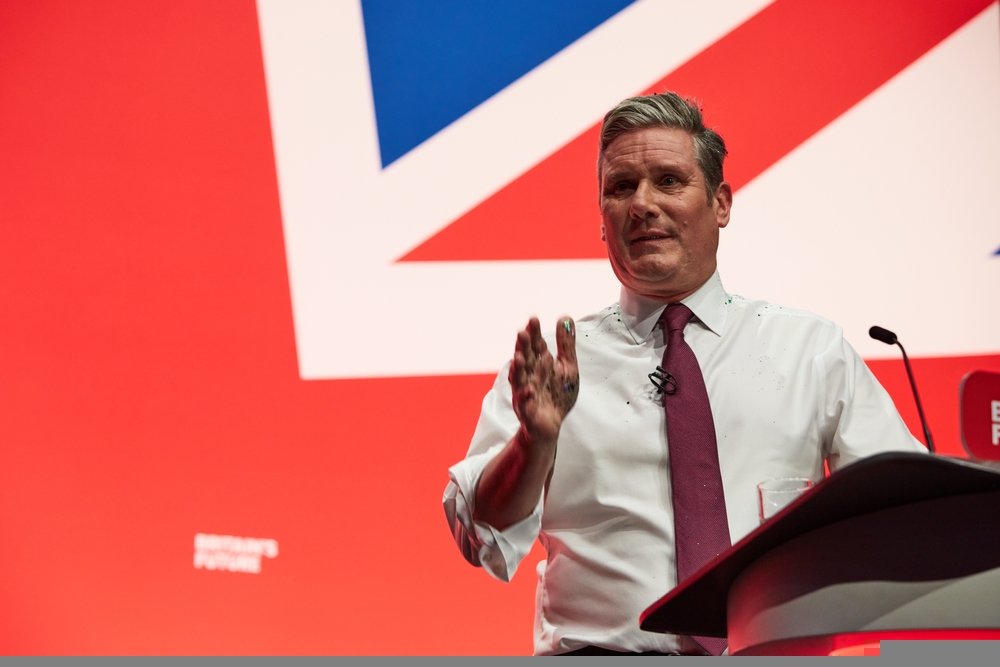When the Big Issue was founded in 1991 by John Bird and Gordon Roddick, inflation stood at 5.9%, down from a staggering 9.5% the year before. With inflation now topping 9% again for the first time since, Britain is very much in the middle of a deepening cost-of-living crisis – and the economic pressure on the nation’s windpipe is only set to rise further in the coming months.
With the Joseph Rowntree Foundation currently estimating that around 14.5 million people are affected by poverty in the UK, organisations like the Big Issue have never been more important.
As a result, the Big Issue embarked upon an extensive rebrand journey last month, centred around an ambitious new five-year strategy which was heavily anchored in greater diversification.
Rebranding as ‘Big Issue Group’, chief marketing officer, Zoe Hayward discusses the brand’s strategic shake-up as it looks to create innovative solutions through enterprise as a means of unlocking social and economic opportunity for the millions of people trapped in poverty in the UK.
READ MORE: Big Issue unveils extensive rebrand as part of ambitious five-year plan
‘One eye on the future’
As with many businesses up and down the country, the initial Covid lockdown proved highly damaging for the Big Issue, whose day-to-day operations hinge on its street vendor sales model.
The focus at the time was purely on survival, Hayward explains – but a clear vision for the future was beginning to emerge: “The first lockdown in March 2020 was really about survival for us. We had to take all of our vendors off the street for the first time, we had to survive as an organisation.

“We kept an eye on the future in terms of thinking about where we would go coming out of the pandemic, and we started to look at new propositions, innovations and solutions to help more people.”
Thankfully, the Big Issue came out the other side unscathed. However, it was clear that a fundamental restructuring would be needed in order to thrive in the post-Covid landscape.
Hayward confirms that the rebrand was no spur-of-the-moment decision, but rather the culmination of a long chain of strategic decisions taken by the business as it re-evaluated how it could better provide for the people who need it most – the vulnerable.
“We ran various research studies to understand where we were as an organisation and where we could go. Coming out of the pandemic, with the cost-of-living crisis affecting more people and likely to put even more into poverty, we felt that now was the right time to do that.
“This is an exciting and important next step for the Big Issue brand,” she adds.
“We have created a compelling, inclusive and single-minded expression of the brand which is bold and confident and we want more consumers to feel motivated and uplifted to join our cause.”
READ MORE: Pilgrims Choice goes big with £2 million brand campaign
Changing lives through enterprise
Going hand-in-hand with the Big Issue’s rebrand is its new post-Covid strategy, driven by its central message of ‘Changing Lives Through Enterprise’. This ties in with the group’s core function of supporting vulnerable people by giving them access to employment.
This desire to offer tangible, long-term solutions forms the Big Issue’s essential purpose.
“Changing lives through enterprise has always been at the heart of what we do, and what we wanted to do is take that value proposition and extend it to the whole of the group,” Hayward points out.
As it strives to positively affect as many lives as possible, the Big Issue has inevitably had to diversify its operations – launching projects such as Big Issue Invest as far back as 17 years ago.
The B2B investment business launched in 2005, Hayward says. Since then, it has “invested in about 550 organisations, social enterprises and charities in order for them to improve the lives of people in the community”.
Perhaps most vital is the Big Issue’s announcement of its new ‘Recruit’ proposition, which is set to make considerable difference to many marginalised people by giving them a structured route into permanent employment.
Launching this autumn, Recruit will involve working with individuals on a one-to-one basis, creating a bespoke skills training programme to help them secure sustainable employment.
READ MORE: Royal Mail seeks new charity partner focused on heart health
Big Issue brand awareness
In what has been an eventful first 30 years for the group, one thing that can’t be overlooked is the extensive cultural impact that the Big Issue has had right across the UK, with its vendors now a permanent fixture of any urban town centre.
The brand itself has rapidly evolved into one of the country’s most recognisable charitable organisations, as Hayward notes: “I think the brand is extremely successful, well-loved and trusted in the UK, it’s got an incredibly high awareness.”
However, the work doesn’t stop there – the group believes that it can have much greater impact, and by the end of its five-year strategy “11 million people will be aware or positively impacted by the work that [the Big Issue] does,” Hayward says.
She adds: “Ultimately, our aim is to impact the lives of as many people as we can, as well as create awareness of people who are affected by poverty, alongside what people can more broadly do about some of those issues.”
When evaluating the Big Issue’s 30 years as a business, it is clear to see that it has had an immeasurable impact on thousands of vulnerable and marginalised individuals in the UK – and with the current economic situation its importance is only set to grow.
Hayward lays bare the staggering number of people that the organisation has already helped, revealing: “We’ve impacted the lives of over 100,000 marginalised people through our work with vendors. They’ve earned an income of over £144 million over those 30 years, and with the work that we do through Big Issue Invest, we’ve invested in over 550 organisations since 2005.”
As this British cultural institution embarks upon its root-and-branch rebrand, one thing is clear; the Big Issue has a bigger part to play now than an at any other time since it was founded. The rebrand and diversification of its business model will be key in enabling it – and by extension vulnerable people across the UK – to thrive for many years to come.
Click here to sign up to Marketing Beat’s free daily email newsletter









